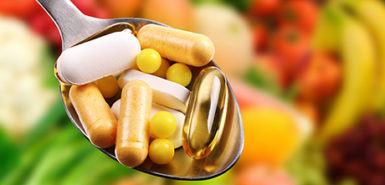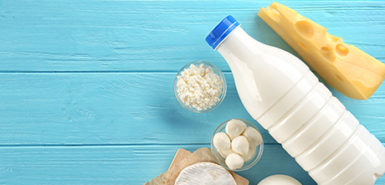
Eating more healthy fats, like nuts, seeds and vegetable oils, while limiting animal fats and refined carbohydrates, can help prevent or control type 2 diabetes, new research suggests.
Our Take
“We saw in the last decade with the push for low fat, not only were we not getting our healthy fats, but people were replacing fat with processed carbs and sugar,” said Irene Franowicz, RD, CDE, Spectrum Health dietitian and certified diabetes educator.
These processed foods are high glycemic and can impact blood sugar. Then there was the 100-calorie snack phenomenon.
“The problem was we needed two bags to be satisfied,” she said.
Nuts and dried fruits help with the cravings and are also ideal for optimal health.
“The research behind nuts shows that because of their healthy fat, protein and high fiber content, it is a low-glycemic choice, which has a definite impact on blood sugar control,” she said. “And it’s more filling so you may not feel the need to go back for more.”
Franowicz often hears from her Eating the Mediterranean Way program participants that processed carbs makes them want to eat more, so nuts are the perfect snack because they are filling. She cautioned, though, to remember that a handful is about an ounce, a perfect portion.
“And if you are craving dark chocolate, how about some dark chocolate almonds?” Franowicz said. “Your heart will love you for it.”
The large study found these dietary changes can lower blood sugar levels and improve insulin sensitivity.
“The world faces an epidemic of insulin resistance and diabetes.
Our findings support preventing and treating these diseases by eating more fat-rich foods like walnuts, sunflower seeds, soybeans, flaxseed, fish and other vegetable oils and spreads, in place of refined grains, starches, sugars and animal fats,” said study co-leader Dr. Dariush Mozaffarian. He is dean of the Friedman School of Nutrition Science and Policy at Tufts University in Boston.
“This is a positive message for the public. Don’t fear healthy fats,” Mozaffarian said in a university news release.
Researchers analyzed results of 102 trials including 4,660 adults to evaluate how different types of dietary fat and carbohydrates affected key risk factors for type 2 diabetes.
The analysis, published in PLOS Medicine, involved studies that provided participants with meals with different amounts of saturated, monounsaturated and polyunsaturated fats and carbohydrates.
The researchers assessed how these dietary differences affected measures of metabolic health, including blood sugar and insulin levels, as well insulin sensitivity and production.
Following a diet rich in monounsaturated or polyunsaturated fat instead of meals high in carbohydrates or saturated fat helps improve blood sugar control, the researchers found.
Previous studies have estimated that each 0.1 percent drop in HbA1C—an indicator of long-term blood sugar control—could reduce the incidence of type 2 diabetes by 22 percent and heart disease by 6.8 percent, the researchers said.
“Among different fats, the most consistent benefits were seen for increasing polyunsaturated fats, in place of either carbohydrates or saturated fat,” said the study’s first author, Fumiaki Imamura, of the Medical Research Council Epidemiology Unit at the University of Cambridge in England.
The study authors said their findings should help inform doctors and patients about the effects of diet on metabolic health and the risk for type 2 diabetes.
“Until now, our understanding of how dietary fats and carbohydrates influence glucose, insulin and related risk factors has been based on individual studies with inconsistent findings,” Imamura said.
“By combining results from more than 100 trials, we provide the strongest evidence to date on how major nutrients alter these risks.”
 /a>
/a>
 /a>
/a>
 /a>
/a>